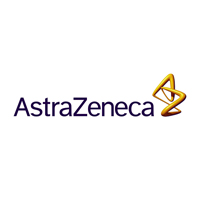AstraZeneca Plc (LON:AZN) today announced that the US Food and Drug Administration (FDA) has granted Orphan Drug Designation (ODD) for Fasenra (benralizumab) for the treatment of Eosinophilic Granulomatosis with Polyangiitis (EGPA).
EGPA is a rare autoimmune disease that can cause damage to multiple organs and tissues.1 The FDA grants ODD status to medicines intended for the treatment, diagnosis or prevention of rare diseases or disorders that affect fewer than 200,000 people in the US.
Sean Bohen, Executive Vice President, Global Medicines Development and Chief Medical Officer, said: “EGPA is a rare, but debilitating inflammatory disease and patients with the disease typically have very high levels of eosinophils. Our clinical trials for Fasenra in severe, eosinophilic asthma show it depletes eosinophils and we are exploring the potential of this medicine to address unmet medical needs in other eosinophil-driven diseases.”
EGPA is characterised by inflammation of blood vessels and the presence of elevated levels of eosinophils, a type of white blood cell.1 Fasenra induces rapid and near-complete depletion of eosinophils in the blood and has proven efficacy in severe, eosinophilic asthma, which suggests it may benefit patients with EGPA.2,3
Fasenra is AstraZeneca’s first respiratory biologic and is currently approved as an add-on maintenance treatment for severe, eosinophilic asthma in the US, EU, Japan and several other jurisdictions.
About EGPA
EGPA, formerly known as Churg-Strauss Syndrome, is a rare, chronic autoimmune disease that is caused by inflammation of small to medium-sized blood vessels.4 EGPA can result in damage to multiple organs, including lungs, skin, heart, gastrointestinal tract and nerves.1 The most common symptoms include extreme fatigue, weight loss, muscle and joint pain, rashes, nerve pain, sinus and nasal symptoms, and shortness of breath.1,4,5 Without treatment, the disease may be fatal.1
Elevated levels of eosinophils play a central role in EGPA disease pathophysiology. All patients with EGPA have very high levels of eosinophils at some point in their disease, both in peripheral blood and in affected tissues or organs.1,4 People with EGPA usually have asthma that may have developed as an adult, and often have sinus and nasal symptoms.4
There are few effective medicines for EGPA. Patients are often treated with chronic high-dose oral corticosteroids (OCS) and can experience recurrent relapses when attempting to taper off OCS.4,6
About Fasenra
Fasenra (benralizumab) is a monoclonal antibody that binds directly to IL-5 receptor α on eosinophils and attracts natural killer cells to induce rapid and near-complete depletion of eosinophils via apoptosis (programmed cell death).2,3
Fasenra is AstraZeneca’s first respiratory biologic, now approved as an add-on maintenance treatment in severe, eosinophilic asthma in the US, EU, Japan, and several other jurisdictions, with further regulatory reviews ongoing. Where approved, Fasenra is available as a fixed-dose subcutaneous injection via a prefilled syringe administered once every 4 weeks for the first 3 doses, and then once every 8 weeks thereafter. Fasenra is also being studied in severe nasal polyposis. Phase III trials for Fasenra in EGPA have not commenced.
Fasenra was developed by AstraZeneca with MedImmune, the company’s global biologics research and development arm, and is in-licensed from BioWa, Inc., a wholly-owned subsidiary of Kyowa Hakko Kirin Co., Ltd., Japan.
About AstraZeneca in Respiratory Disease
Respiratory disease is one of AstraZeneca’s main therapy areas, and the Company has a growing portfolio of medicines that reached more than 18 million patients in 2017. AstraZeneca’s aim is to transform asthma and COPD treatment through inhaled combinations at the core of care, biologics for the unmet needs of specific patient populations, and scientific advancements in disease modification.
The Company is building on a 40-year heritage in respiratory disease and AstraZeneca’s capability in inhalation technology spans pressurised metered-dose inhalers and dry powder inhalers, as well as the Aerosphere Delivery Technology. The company also has a growing portfolio of respiratory biologics, including Fasenra (anti-eosinophil, anti-IL-5rɑ), now approved for severe, eosinophilic asthma and in development for severe nasal polyposis, and tezepelumab (anti-TSLP), which has been granted Breakthrough Therapy designation by the US Food and Drug Administration in patients with severe asthma, and is in Phase III trials. AstraZeneca’s research is focused on addressing underlying disease drivers focusing on the lung epithelium, lung immunity and lung regeneration.








































